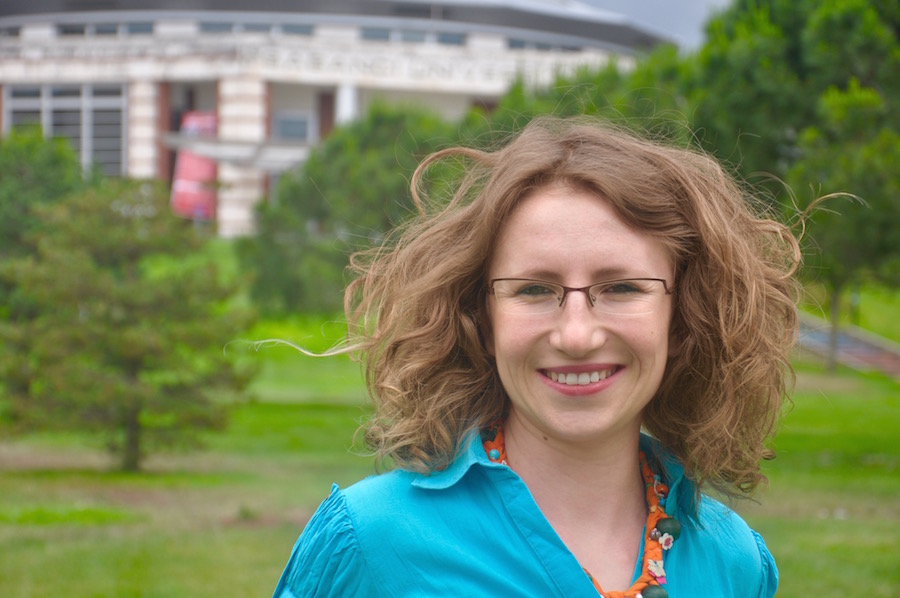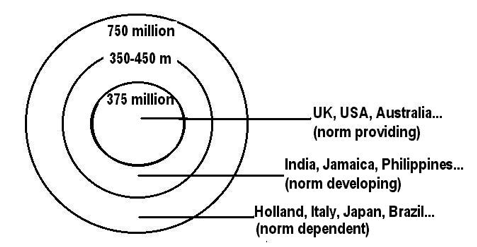METU International ELT Convention

The 12th METU International ELT Convention
Review by Vildan Cal
The 12th ODTÜ International ELT Convention was held on May 25-26 at ODTU Convention Center. This two-day event included five plenary sessions and over 100 concurrent sessions consisting of interactive research paper presentations, workshops, posters, Ph.D. workshops and e-sessions. The theme of the convention was Celebrating Diversity and it covered topics such as;
• Diversity in student and teacher profile
• Diversity in teaching and learning practices
• Diversity in assessment techniques, methodology and material design
• Diversity in teacher training and continuous professional development
• Diversity in the use of English grammar, pronunciation, and skills
• Cultural diversity
It was great to be there again this time not as an MA student, but as a presenter. I participated in the convention with an e-session titled “Active Reading with Actively Learn”. I presented an online tool used for creating reading materials. The participants were quite interested in the tool, and I had a great session. I attended all the plenary sessions and some of the concurrent sessions were also really inspiring. I would like to mention a few of the talks that I attended here.
Plenary Talks

“Globalization of English and Changing Pedagogical Priorities”
Dr. Suresh Canagarajah
The opening plenary was given by Dr. Suresh Canagarajah on Globalization of English and Changing Pedagogical Priorities. His focus was on comparison of Standard English, measured in terms of the native speaker – British or American, and world English, measured by the ability to engage in social and institutional interactions in multilingual communities with local conventions.
Based on the Kachruvian Model he emphasized that the owner of English has changed as there are more EFL speakers than L1 speakers. He concluded that measuring one’s proficiency against native speakers is unfair and negotiation strategies that we use are more important than correct grammar in communication. Thus, he calls for a shift in English language teaching considering English as lingua franca.
“Diversity from within: Focusing on the Classroom Teacher”
Assoc. Prof. Dr. Betil Eröz Tuğa
This talk discussed the importance of teacher culture as teachers communicate a huge amount of cultural information in the classroom through their actions, behavior and words. In other words, they reflect their deep culture both implicitly and explicitly. The presenter showed us video clips of her colleagues describing their characteristics as teachers and social persons. In the videos, they simply completed the following sentences “I’m a…………………..person ” and “I’m a …………….. teacher”. It was clear that there is a correlation between teachers’ social identity and teacher identity. It was interesting to see the similarities of adjectives that the teachers in the video clips used while defining themselves as teachers and social individuals. Then, the presenter talked about the challenges in reflecting on teacher identity, formation, and acceptance. She focused on labeling teachers as a facilitator, trainer, mentor, novice, experienced, inexperienced etc. and how this may affect their self-perception. Actually her main point was how labeling teachers as native and non-native affects their self-perception. She shared some worldwide ELT job announcements almost all of which were looking for a “native” teacher to point out the “native” obsession of institutions.
“High Quality Classroom Assessment for All”
Dr. Deena Boraie
She presented key principles about testing and assessment. She emphasized high-quality assessment by mentioning three components of it; validity, reliability and fairness. Her talk continued by explaining each component.
Panel Discussion
“Linking Teaching and Testing to CEFR”
Prof. Dr. Sinan Bayraktaroğlu, Prof. Dr. İsmail Hakkı Mirici
Dr. Elif Kantarcıoğlu, Zeynep Ürkün
The panelists gave brief information on the CEFR and raised questions about whether we really need to link our curriculum and tests to the CEFR; if yes, how we should implement it; how realistic it is to use the CEFR in the development of tests and curriculum in the Turkish context; and how informed the English teachers are when it comes to the CEFR. One of the participants of the panel discussion was Zeynep Ürkün. She focused on the flexibility of CEFR by reminding us that CEFR is not an prescriptive tool. Dr. Elif Kantarcıoğlu shared the outcomes of their teacher training experience about the CEFR. She emphasized that direct training where a group of teachers are trained about the CEFR is not an effective method as it was observed that the participant teachers mostly ignored the CEFR when they started actual teaching after the training. She believes that incorporating CEFR descriptors into the curriculum is more effective.
Here are some of the concurrent sessions which I think worth mentioning in this review.
Rediscovering Writing (Interactive Workshop)
Lindsay Clandfield
Teachers complain about the fact that students don’t like writing. However, considering the amount of time they spend on writing especially in the form of WhatsApp messages, Facebook, or Twitter posts, today’s students do more writing than the past. Considering this fact, the presenter raised the following question:
“Don’t they like writing or don’t they like the way of writing we do in class?”
Since students see writing, the type that we do in class, as a boring activity, teachers should rediscover writing in their classes by rethinking what motivates students to write. In his interactive workshop, he provided us with many practical writing activities which were mainly in the form of instant writing. Sentence update, paper conversation, double screening, sentence expansion, and story builder are a few to mention. He emphasized that the focus should deviate from planned writing to fluency writing in order to increase writing practice in our classes.
The workshop materials can be found here: https://app.box.com/s/0xsjv54sbh18uqx3j01a
If you would like to add his blog to your list of blogs to follow: http://lindsayclandfield.com/
“Hard Times for Teachers” Empowering Teachers through Drama Techniques:
Dave’n’Luke ~ English Language Theatre
Voice, Body Language, Presence: a performance by David Gibson and Luke Prodromou
David Gibson and Luke Prodromu performed 3 short theatrical pieces followed by related activities in the form of comprehension questions and discussions. The purpose of this workshop was to provide concrete examples of the power of the most important instruments in building the teacher’s presence: our voice and body language. Sometimes it is good to add variety to lessons and I think theatrical pieces are great to break up the syllabus.
Supporting and Developing Students’ English Literacy Practices in the Disciplines
Shari Dureshahwar Lughamani
I can still remember that when I was a student, our instructors at faculty would ask us to write a reflection paper on a chapter of a book, and I had no idea about how to do that. Luckily, we could ask Google by typing “how to write a reflection paper an a chapter of a book” but were overwhelmed by the variety of means of doing it the right way. “Read an article and write a response paper!” What was a response paper? My friends from science departments had to spend some time understanding how to write a lab report. Although most of us had studied at preparatory school, we were still a bit confused about the variety of writing genres that we had to deal with at faculty, especially in the freshman year. Why? Because we had always written five-paragraph essays throughout the prep school. And our instructors at the faculty did not care if we were familiar with the writing tasks that they assigned. We could survive with the help of our sophomore peers.
These memories are the reasons I was so amazed by this research paper presentation about a project. The project is an inter-institutional project on supporting and developing students’ English literacy practices in the disciplines. It is currently being carried out in Hong Kong Polytechnic University in collaboration with City University of Hong Kong, and Hong Kong Baptist University. This project aspires to support the integration of English literacy practices into content subjects in social sciences, science, and engineering. The biggest aim of this project is to ensure collaboration among students, language teachers and faculty instructors in order to prevent the confusion that the students may experience about the writing tasks assigned in their disciplines. The presenter pointed out three main issues that lead to this confusion:
- There is contradictory feedback from language teachers and faculty instructors as to the format and/or content of the writing tasks.
- Faculty instructors are inventing or modifying writing assignments without considering their genre
- Faculty instructors do not have enough knowledge and expertise about how to design instructional materials related to English literacy.
This project aims to ensure language and faculty instructors are speaking the same language in terms of instructional materials and tasks related to written assignments. This project ensures a kind of literacy support system by:
- establishing discipline-specific literacy needs of students, subject teachers, and academic departments
- identifying the range of assignment genres across the four years of the university curriculum
- developing support materials and resources for students and subject teachers through online resource packages and materials.
The project will analyze the existing writing practices of students in faculties in order to develop relevant resources that the faculty instructors and language teachers will be able to use to establish a stimulating learning environment for students. At the end of the project:
- online literacy resources and packages for students, faculty instructors and language teachers will be developed
- discipline-specific databases with genre- guides, common-errors, assignment templates, assignment rubrics and model assignments for both content teachers and students will be available
- an interactive literacy platform will be created to host materials, stimulate discussions and offer webinars
I think this is an excellent project which may inspire Turkish universities to ensure better communication between faculties and preparatory schools.
The details of the project can be found in the following links;
http://www.polyu.edu.hk/fh/zh-cn/newsletter_details/sidebar/84
http://www.polyu.edu.hk/fh/en-us/newsletter_details/sidebar/92
